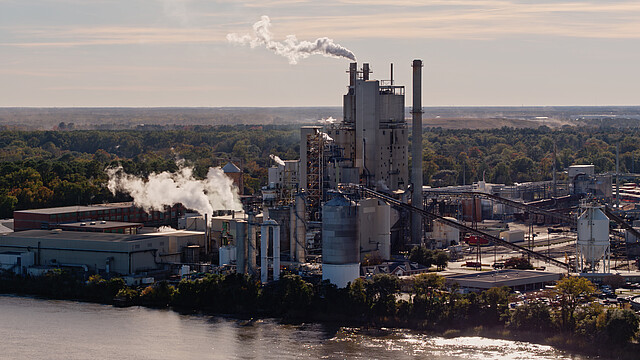Addressing Sensory Odors
Preserving Air Quality and Human Well-being
In our interconnected world, human cohabitation & essential process services can sometimes cross paths a little too close to home. One such consequence is the presence of fugitive odors, which can impact air quality and human life. These odors, emitted from sources like wastewater pulp and paper plants, have the potential to be a nuissance and affect the overall well-being of the general population. Fortunately, industrial filtration systems present a solution to mitigate these challenges, improving air quality and enhancing the quality of life for all individuals.
Understanding Sensory Odors and Their Impact:
Odors are produced from various industrial sources, including processes such as wastewater treatment and pulp and paper plants. When released into the air, these odors tend to be a nuisance to people in their the surrounding areas, affecting neighborhoods, workplaces, and public spaces to varying degrees.
The impact of poor air quality (and foul odors) should not be underestimated. Prolonged exposure to poor air quality significantly contributes to decreased productivity and potentially serious health implications. Clean, healthy air is essential for the overall well-being of people, contributing to their physical and mental health.

Industrial Filtration- A Solution for Sensory Odors:
Industrial filtration systems provide an effective solution to control sensory odors emitted from various industrial processes. By implementing advanced filtration technologies, these systems can capture odor-causing gasses, promoting cleaner, healthier air and reducing the impacts of essential industrial processes on human life.
In the context of wastewater treatment plants and pulp and paper facilities, industrial filtration can play a pivotal role. Specifically designed filters, integrated within these filtration systems, effectively capture and neutralize the odors emitted during these processes. The application of filtration technology helps mitigate the impact of sensory odors on air quality, benefiting the general population.
Positive Impacts of Industrial Filtration:
Implementing industrial filtration systems brings forth a range of positive impacts on air quality and human life.
Enhanced Air Quality: Industrial filtration systems significantly contribute to improving air quality by removing odor-causing substances. This not only benefits the general population but also creates a more pleasant and comfortable living and working environment.
Health and Well-being: By reducing sensory odors, filtration solutions promote better physical and mental health for individuals. Cleaner air free from unpleasant odors positively affects overall well-being, allowing people to thrive in their daily activities.
Social and Environmental Harmony: Industrial filtration fosters social harmony by minimizing the discomfort and dissatisfaction caused by sensory odors. Creating a more pleasant and inclusive environment for the general population promotes social cohesion and a sense of belonging.
Sustainability and Compliance: Filtration systems contribute to sustainable practices by aiding industries in complying with environmental regulations. By reducing the emission of sensory odors, filtration solutions align with broader sustainability goals, ensuring a healthier environment for future generations.
Sensory odors emitted from wastewater and pulp and paper plants can impact air quality and human life, affecting the general population's comfort and well-being. Recognizing the broader implications of sensory odors allows us to address these challenges inclusively. Through the implementation of advanced industrial filtration systems, we can effectively mitigate the impact of sensory odors, improving air quality and enhancing the quality of life for all individuals. By investing in filtration technologies, we take a significant step towards creating a cleaner, more comfortable, and harmonious environment for everyone to thrive.
Learn more about Freudenberg Filtration Technologies solutions to odor control.











